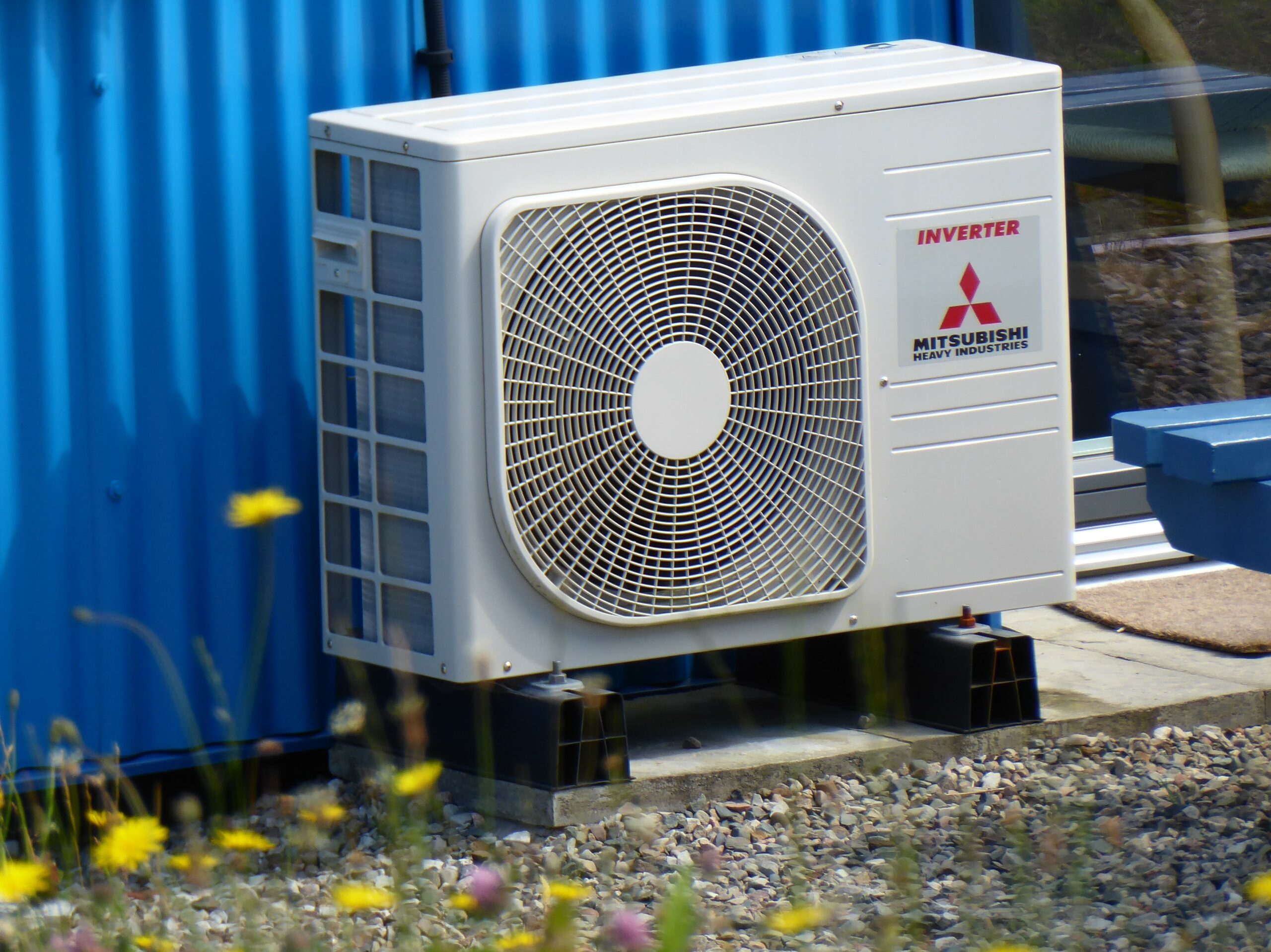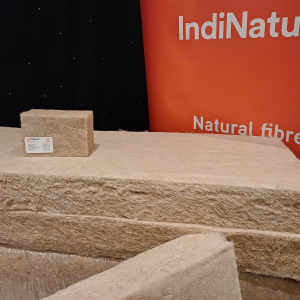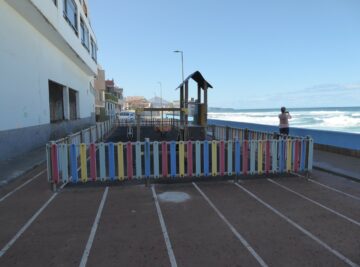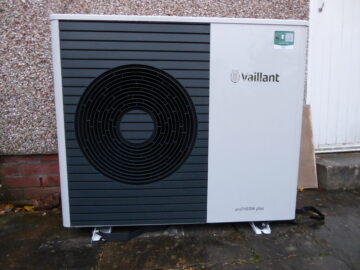
Do heat pumps work? Are they noisy? Is my home warm? Is it expensive? How did I halve my bill? I can finally reveal the answers!
I wrote my previous blog in the post installation excitement. Six months on, is my heat pump working? Let’s start with a reminder of my home electrification project.
What did I install?
I installed a 7kw Vaillant Arotherm plus air sourced heat pump with new radiators and pipework. I added extra solar panels, now totalling 4.5kwp, and a 15kwh battery. I got a smart meter fitted and moved to the Octopus ‘cosy’ tariff which offers 3 different price bands dependent on the time of day.
Why did I do it?
Firstly, to slash my home carbon emissions – a massive 71% reduction from 2.8 tonnes to 0.8 tonnes per year. These will continue to fall as the national grid continues to decarbonise. Note that it is the heat pump that has slashed our emissions, the solar power less so. We all need to stop burning fossil gas.
Secondly, I could afford it. Home Energy Scotland supported us with a grant and a loan. For once I was a trailblazer, demonstrating how we can convert from burning gas to a heat pump.
Does it work? Is my home warm? Is it noisy?
Yes, yes, no.
I was a little concerned whether a 7kw heat pump (that is 7kw output, around 2.5kw electrical input) would be sufficient. We have a 1960’s 4-bedroom house in Scotland with mediocre insulation. As soon as we installed the heat pump, we were plunged into a December cold snap, but the heat pump kept the house pleasantly warm. In fact, we now heat the whole of our house. In the past we chose not to warm some rooms. The secret is to warm the house more slowly. We switch the heating off overnight, then switch on at 3 or 4am to take advantage of the cheaper electricity tariff from Octopus.
The heat pump is as quiet as a fridge, and in any case it is outside. Not an issue.
Do solar panels help with a heat pump?
Heat pumps use a lot of electricity so you might think that solar panels will slash their running costs. In fact, this is a bit complicated. Solar panels work best in summer whilst heat pumps chew up electricity in the winter. In the summer our solar panels easily heat all our hot water. However, in the winter the solar panels only make a small dent in our total electricity consumption.
So, how did you halve your energy bill?
By buying a battery. In the summer, any solar electricity we don’t immediately consume charges the battery. Then we use this free electricity in the evening and overnight. Our consumption from the grid is minimal. In winter, the trick is to charge the battery during periods of cheap electricity prices then the battery can operate the heat pump throughout the day at 20p per unit rather than the standard 34p per unit [price cap January to June 2023].
Running Costs
These are based on my actual use and costs between January to June, doubled to equate to one year. The comparison with 2022 is at current energy costs for a like for like comparison.
In 2022 our electricity bill was £800 plus gas of £1,200, total £2,000. Despite our larger than average house, our energy bill was less than the ‘average price cap’ of £2,500 – because we don’t overheat our home, we have energy efficient appliances, and we already had some solar panels. Without the solar panels our bill would have been approximately £2,500.
In 2023 we will have no gas bill or standing charge as we disconnected the gas meter. Based on extrapolating from the first six months of the year our electricity bill, including standing charges, for heating, hot water, lighting and appliances will be £1,100 (3,750 units).
Implications
Public bodies are still telling the public that it will cost about the same to run a heat pump as to heat a home from fossil gas. But, they are missing the potential flexibility of electricity. A heat pump combined with a (free) smart meter can enable you to access cheaper electricity tariffs. And that is before you start making bigger savings if you invest in solar or a battery.
Electricity tariffs are far more flexible than gas. Octopus Energy paid us a small amount to take part in the ‘demand management’ trials to provide flexibility to the National Grid. We can also claim an export tariff for exporting surplus solar power to the grid. The future is electrification.
Conclusions
The running costs of a heat pump versus fossil gas in the UK are comparable (but you will slash your carbon emissions). This is because the high price of electricity cancels out the inherent efficiency of a heat pump [we should shift energy taxes from electricity to gas].
If you have a smart meter, and switch to a more favourable electricity tariff, then you can make a small saving with a heat pump, say 10%.
If you have solar pv then you could make a further saving, say 20%.
If you have a battery, that you can charge at off-peak rates, then you can make more significant savings, say 30%.
If you combine them all, as I did, then you can cut your heating bill in half.
Please note that although these are all estimates they are based on my experience.
If you like this blog, please share it with your friends and on social media.
Carbon Choices
Don’t miss my future blogs! Please email me at This email address is being protected from spambots. You need JavaScript enabled to view it. and I will send you each new blog as I publish them.
You might also enjoy my book, Carbon Choices on the common-sense solutions to our climate and nature crises. Available from Amazon or a signed copy direct from me. I am donating one third of profits to rewilding projects.
Follow me:
@carbonchoicesuk (twitter) @carbonchoices (Facebook) @carbonchoices (Instagram)
- SEO Powered Content & PR Distribution. Get Amplified Today.
- PlatoData.Network Vertical Generative Ai. Empower Yourself. Access Here.
- PlatoAiStream. Web3 Intelligence. Knowledge Amplified. Access Here.
- PlatoESG. Carbon, CleanTech, Energy, Environment, Solar, Waste Management. Access Here.
- PlatoHealth. Biotech and Clinical Trials Intelligence. Access Here.
- Source: http://www.carbonchoices.uk/index.php/blog/blog-47
- :has
- :is
- :not
- $UP
- 000
- 100
- 200
- 2022
- 2023
- 500
- 750
- 8
- a
- About
- access
- actual
- added
- address
- ADvantage
- afford
- AIR
- All
- already
- also
- Although
- am
- Amazon
- amount
- an
- and
- any
- appliances
- approximately
- ARE
- around
- AS
- At
- available
- average
- based
- battery
- BE
- because
- been
- before
- being
- BEST
- between
- bigger
- Bill
- Bit
- Blog
- bodies
- book
- burning
- but
- Buying
- CAN
- cap
- carbon
- carbon emissions
- case
- charge
- charges
- cheap
- cheap electricity
- cheaper
- choices
- chose
- claim
- Climate
- CO
- cold
- combine
- combined
- comparable
- comparison
- complicated
- concerned
- consume
- consumption
- continue
- continues
- convert
- Cost
- Costs
- could
- crises
- Current
- Cut
- day
- December
- demonstrating
- dependent
- Despite
- DID
- different
- disconnected
- do
- donating
- Dont
- doubled
- during
- each
- easily
- efficiency
- efficient
- electricity
- electricity consumption
- Emissions
- enable
- enabled
- energy
- enjoy
- estimates
- evening
- Excitement
- expensive
- experience
- export
- extra
- fact
- Fall
- far
- Finally
- First
- Flexibility
- flexible
- For
- fossil
- Free
- friends
- from
- further
- future
- GAS
- got
- grant
- Grid
- had
- Half
- halved
- Have
- help
- High
- Home
- HOT
- House
- How
- However
- http
- HTTPS
- i
- if
- immediately
- in
- Including
- inherent
- input
- install
- installation
- installed
- into
- Invest
- issue
- IT
- January
- JavaScript
- jpg
- june
- kept
- larger
- less
- Lighting
- like
- little
- loan
- Lot
- make
- Making
- massive
- me
- Media
- might
- minimal
- miss
- missing
- months
- more
- moved
- my
- National
- Nature
- Need
- New
- no
- note
- now
- of
- off
- Offers
- on
- once
- ONE
- only
- operate
- or
- our
- out
- output
- outside
- overnight
- paid
- panels
- part
- past
- per
- periods
- plato
- Plato Data Intelligence
- PlatoData
- please
- plunged
- plus
- Post
- potential
- power
- price
- Prices
- profits
- project
- projects
- protected
- provide
- public
- publish
- pump
- pumps
- Rates
- rather
- reduction
- reminder
- reveal
- Rooms
- Run
- running
- same
- saving
- Savings
- say
- Scotland
- Secret
- send
- Share
- shift
- should
- signed
- significant
- SIX
- Six months
- Slowly
- small
- smart
- Snap
- So
- Social
- social media
- solar
- solar panels
- Solar Power
- Solutions
- some
- Soon
- sourced
- standard
- standing
- start
- Still
- Stop
- sufficient
- summer
- Supported
- surplus
- Switch
- Take
- tariffs
- Taxes
- telling
- than
- that
- The
- The Future
- the UK
- their
- Them
- then
- These
- they
- Think
- Third
- this
- throughout
- time
- to
- Total
- trailblazer
- trials
- Uk
- unit
- units
- us
- use
- Versus
- View
- warm
- was
- Water
- we
- were
- whether
- which
- Whilst
- whole
- will
- Winter
- with
- without
- Work
- working
- would
- wrote
- year
- yes
- you
- Your
- zephyrnet













